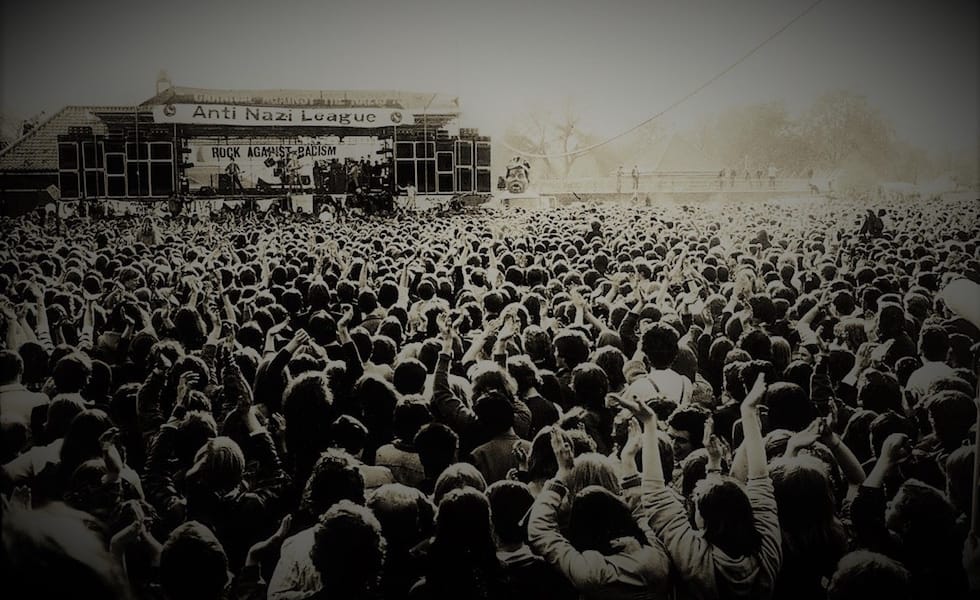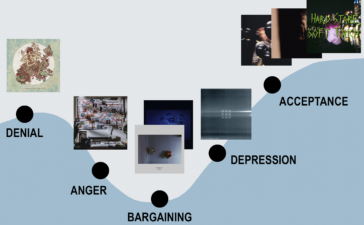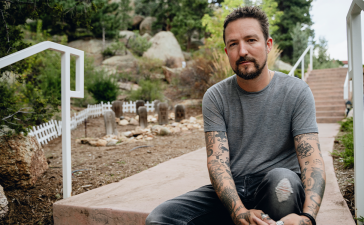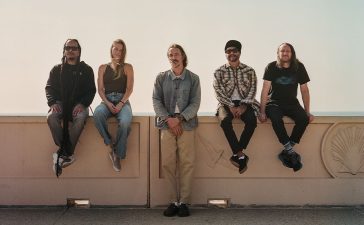There’s a wonderfully curious thing that happens with a crowd of punks decides to combine their collective power, physically and cognatively; Change. And huge swaths of it. Sure, revolution was a tentpole of the rock movement since the 60s, but what those bands talked shit about doing while buried in cocoine, punks largely went out and did. Indeed it’s safe to say, hell hath no fury like punk rocking back.
As such, it would be a wise move to not invoke the ire of the punk rock milleiu.
Which is why we draw your attention to Exhibit A: Bankrupt, the brand new single from Silverstein and their first batch of new tuneage since last years a Beautoful Place To Drown. Aggressive, and incredibly threatening, Bankrupt is an unflinching shirt-front that screams to the indifferent “Where is your rage?” while simutainslty to it’s percieved targets – “Two-faced leaders and greedy elected officials” – “Here’s ours.”
“This song sounds mad because I am mad…” . “2020 was horrible for everyone except a select few in elevated positions who leveraged that power and opportunistically kicked us all while we were down. We watched billionaires make massive gains while our two faced government officials either sat on their hands and looked the other way, or worse: passed legislation that actively fucked the people in favour of appeasing big business. Watching these racist, aristocrat hypocrites denounce looting in the streets while they pickpocket the working class pissed me off then and it always will. They might have the money, but they will always be morally bankrupt.”
“…It is caps lock music.”
And this is no idol threat, either. This might be the first time ‘caps lock music’ has been named, but it’s not the first time it’s been deployed.
If we roll with the prevailing wisdom that punk rock was first identifed in the mid 70s, then it took all of about a minute for it’s potential as a weapon to insight social change to be released, as by the end of that decade, punk rock was the spiritual soundtrack of social and political unrest throughout the world and Caps Lock Music was the pissed off sound resonating with the pissed off masses.
At the end of the 70s, punk rock set it’s sights on racism, and the wave of Nationalism that sweap Europe. The Rock Against Racism movement, inspired by some insanely racist and concerning remarks from Eric Clapton, David Bowie and Rod Stewart. The Rock Against Racism charge was led by the likes of the Tim Robinson Band, The Ruts, Misty In Roots and many more. Recent documentary White Riot, which we recently dived into on Blunt Magazine, explains just how crutial the Rock Against Racism movement was against the rise of UK’s then popular white supremacy movement National Front.
It was a force felt across the ditch too, with French punks such as Bérurier Noir leading the charge against the French National Front and their hard line right wing rhetoric. While racism remained underred then as it is now, the Rock Against Racism movement let to a protest of thousands of people, punks all of them, which sent shockwaves through the whole world.
And it wasn’t just in the safety of a democracy that punk was being welded with intent. Behind the Iron Curtain, punk rock, which was largely banned by state-sanctured censorship was also dishing out music in caps lock. In countries such as Poland and Estonia, bands such as KRYZYS and BRYGADA KRYZYS wrote the kind of angry music that resonated with the people, oppressed by waning Soviet dictators refusing to loosen their grip.
Caps Lock Music also found it’s footing in punk during the late 90s. Following a string of violent crimes against women, and the perception that feminism at lost steam, a new wave was breaching and high atop it’s crest was the Riot Grrl movement, powered by the likes of Bikini Kill, Bratmobile, Heavens to Betsy, and Huggy Bear. First documented in a punk zine, as many good causes are, the Riot Grrl movement was Caps Lock Music delivered to the masses.
Unapologetic, incredible intelligent and based firmly in great songwriting, the impact of the Riot Grrl movement cannot be understated – or even quanified at this point as the movement continues at full force with bands such as BOYSCLUB, but continues to be a shining example of what punks can achieve not just for themsleves, but for the wider communuity.
Now, just as then, caps lock music is making a stand, and nothing is outside of it’s perview: racism, sexism, corruption; nothing.
Anti-Fascist caps lock music is having a boon moment in Belarus where bands such as Mister X, who’s frontman Igor Bancer was recently arrested for protesting against the wildly viewed sham election of Alexander Lukashenko, whom bands have been protesting against for his entire tenure – since the foundation of the country. All-female punks Messed Up have also captured the hearts of the countries youth, depicting the strife of post-Soviet life through a feminist lens.
In Myanmar, gripped by a brutal militiary coup, caps lock music has again come to the rescue with considerable results. Punk in Myanmar now is also heavily involved in the civil desobedience movement and demonstrations against the coup. Local bands such as The Rebel Riot and the entire punk scene let to the creation of Food Not Bombs, an initiative that brings food, education and basic life necessities to the regions most effected by the conflict, who, of course, are those already most vulnerable. The cause recently announced an international punk rock compliation – a cacophany of caps lock music – with all proceeds going to Food Not Bombs.
So, it would be a fools move to discredit caps lock music. History has shown that it can talk the talk and walk the walk. Indeed, once the intentions are made known that a song or an album is one or protest, change starts.
And when a band of the stature of Silverstein makes such declarions of caps lock music known, the change is accellerated and amplified. As such, it’s advised that all those who profited from deceat during the Pandemic, all those who danced on the bones of the dead relatives in the name of business, all of those who have been proven morally bankrupt, ask not for whom the caps lock music tolls. It tolls for thee.








